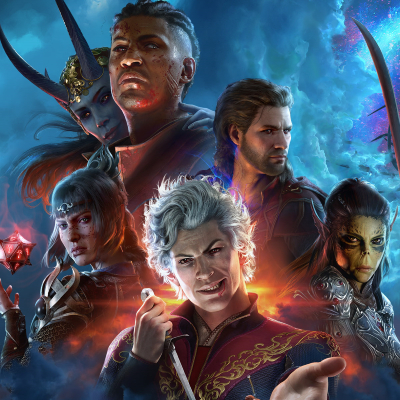The Alters has been enjoying a solid reception from fans and critics alike—we even gave it a sterling 90% in our The Alters review—unfortunately, that shine’s been tarnished by some recent player discoveries: The Alters almost definitely used AI to generate its background text and translations.
As spotted by Eurogamer, several screenshots have emerged of 11 Bit Studios getting caught with its deep-learning pants down, such as the following screenshot of some background text that still has the words “Sure, here’s a revised version focusing purely on scientific and astronomical data”, a telltale sign the text was run through a LLM at some point.
Did The Alters (captain) use a little bit of AI? from r/TheAlters
While 11 Bit Studios has certainly been naughty—any game that uses AI needs to clearly state so in the store page, as per Steam’s policies—this isn’t the worst use of AI text I’ve ever seen.
Background text in games is typically gibberish, a lorem ipsum variant, or a cheeky easter egg. While rinsing something through a LLM is a smidge cheap, it’s not a disaster. The more severe instances crop up when it comes to the game’s localisation. Here’s one player spotting a similar prompt message left in the game’s Portuguese translation.

Lucile Danilov, a localisation specialist for videogames, shared the screenshot on LinkedIn, tearing into the practice as “spitting in the face of your international audience”—though it’s unclear whether the fault lies with the localisation companies 11 Bit Studio used, or with the developers themselves.
As Danilov mentions, it could’ve been “done by someone on the dev/publisher side who couldn’t be arsed, sending last-minute missing lines for translation, and decided to throw them in a random LLM without oversight.”
Handong Ryu, who claims to’ve translated the game into Korean, replies: “The same issue exists in the Korean version as well, which makes it more likely that the second scenario you mentioned is closer to the truth. While no AI prompt has been exposed, I can confirm that the same section of the Korean localization shows clear signs of having been run through an LLM without proper editing.”
Machine translation can be useful for getting a quick, literal sense of what someone’s saying, but it’s flawed—hence why we give you a heads-up whenever something we’re reporting on has been translated using it. Proper, digestible localisation requires a human touch, because language is tied to culture. Idioms and references are just scratching the surface.
For example: Final Fantasy 14, which through most of its history has had some excellent localisation, had to tackle Urianger’s mode of speech. In the original Japanese, Urianger speaks in a flowery, formal register (Japanese has a lot of politeness levels and modes of speech).
Given English doesn’t have a direct equivalent, the translators made a conscious choice to have him speak in Shakespearian prose, a choice that generative AI likely wouldn’t make because, well, it doesn’t think.
I personally don’t care if some overworked background artist did the modern equivalent of a lorem ipsum to fill out text on a data screen (though I’d encourage them to maybe, uh, read it first) but The Alters’ cavalier attitude to translation seems like a huge oversight by the studio.
If Ryu’s statement holds water, and it turns out this was spat out by a dev who didn’t want to pass a rewrite down the line, then it’s unprofessional at best—if you credit a translator for their work, then slip in a few LLM lines, that could potentially tarnish their reputation if you don’t fess up.
There’ve also been some allegations of AI-generated portraits doing the rounds on social media, though I’ve not personally seen any compelling evidence, given full, non-AI looking renders were discovered in their wake.
It’ll be interesting to see how this all pans out, since this seems to be the first instance of a major critical success circumventing Steam’s AI disclosure policy. Even if it wasn’t on ‘purpose’: ie, a silly choice made by an isolated dev? That raises interesting questions, too. How does a larger studio stop its hundreds of employees from putting a hidden time bomb in a game’s flavour text? I’ve reached out to 11 Bit Studios and I’ll update this article if I get a response.

2025 games: This year’s upcoming releases
Best PC games: Our all-time favorites
Free PC games: Freebie fest
Best FPS games: Finest gunplay
Best RPGs: Grand adventures
Best co-op games: Better together
